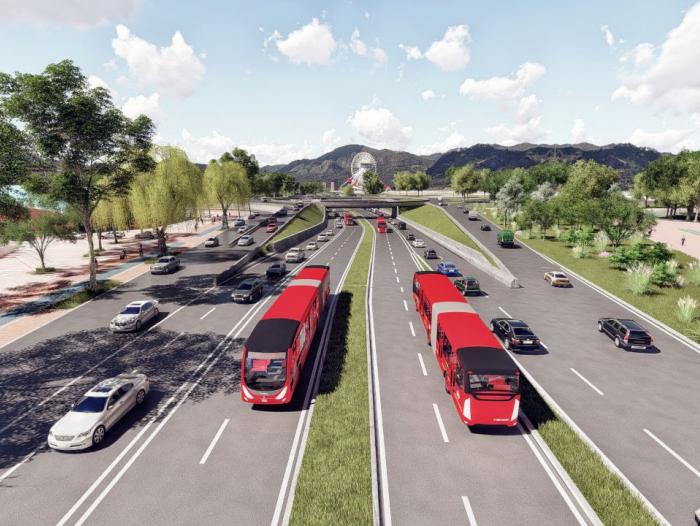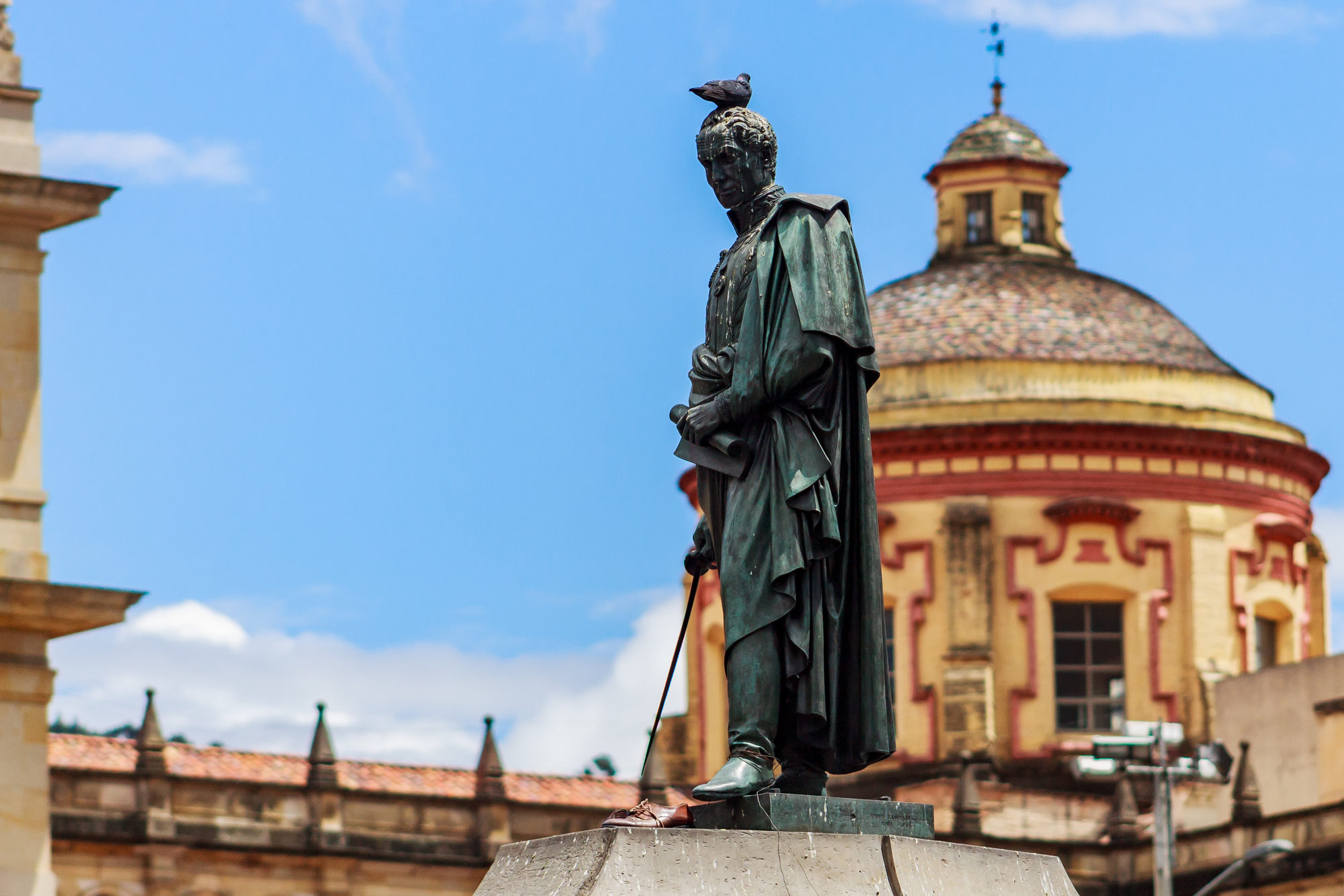 On Trial is a Bogotá Post feature in which we put someone or something from the Colombian news “on trial”, explaining the perspective of both their proponents and their critics.
On Trial is a Bogotá Post feature in which we put someone or something from the Colombian news “on trial”, explaining the perspective of both their proponents and their critics.
 In this edition Mike Mackenna examines privatisation in Bogotá, a hot topic after Mayor Enrique Peñalosa, while not making any concrete promises, hinted at a privatisation plan in his first address to the city council
In this edition Mike Mackenna examines privatisation in Bogotá, a hot topic after Mayor Enrique Peñalosa, while not making any concrete promises, hinted at a privatisation plan in his first address to the city council
For the Prosecution |
For the Defence |
| SUMMARY
• These companies belong to the citizens of Bogotá, so the government has no right to sell them • Bogotá doesn’t need the privatisation money, because its major infrastructure projects are already paid for • If Bogotá needs the money, borrowing is a better option than privatising, since the city is in a good position to borrow Ladies and gentlemen of the jury, I would like to put forward two reasons why our water company Acueducto and our telecommunications company ETB should stay in public hands. The first reason is very simple: these companies belong to us. They are not Mayor Peñalosa’s to sell. They are not the city council’s to sell. They are ours. We paid for them with our tax money. I don’t know about you, ladies and gentlemen, but I deeply resent the idea that a mayor who didn’t even win a third of the votes acts as if he has the right to sell our property. I deeply resent the idea that a mayor who only received 900,000 or so votes in a city of eight million people presumes to take property belonging to the entire city’s population and auction it off. Now, the second reason is more complicated. It’s the economic argument. While the economic difficulties you read about in the news are real, you would still be justified in asking yourselves if we really need the money from those privatisations. The answer to that very reasonable question is that we don’t. Our biggest infrastructure project, the metro, is already paid for. The second proposed project, creating a Transmilenio line on Avenida Boyacá, has been paid for thanks to the government money assigned for the metro. A third major infrastructure project, new roads proposed by mayor Peñalosa, will be paid for by congestion charges. For those who say that these public services are a drain on our budget at a time when we cannot afford to waste money, I would point out that ETB, which the mayor wants to sell, had the financial clout to give the city about USD$135 million to help build the Metro, and to pay out dividends to the city of almost USD$140,000. ETB’s stock price increased 33% between October 2013 and June 2015, even though the Colombian stock exchange ColCap fell almost 25% during the same timeframe. The company turned a profit in 2013 and 2014, and in the first trimester of 2015, ETB’s profits increased 146% compared to the same period the year before.
One final question you might ask yourself, ladies and gentlemen, is what happens if there are cost overruns, or an emergency? Where does the money come from then? The city has plenty of capacity to borrow money. In 2016 Bogotá will be indebted at a level of 56% of its revenues, with the legal limit for that debt at 80%. Bogotá can access the financial markets easily: in December 2015 Standard & Poor’s gave Bogotá an investment grade credit rating of BBB-. As you have seen, the argument for privatisation is based on several mistakes. It’s a mistake for Peñalosa to think he has the right to sell our property, it’s a mistake to think our public companies are a drain on our budget, and it’s a mistake to think we have no options besides privatisation to fund our most expensive projects. Don’t let the mayor give away what’s ours because of these mistakes. |
SUMMARY
• There is good reason to doubt the financing for Bogotá’s major infrastructure projects • If the city takes on more debt, it could lose its investment grade rating • If it loses its investment grade rating, borrowing could become too expensive, which may force the city to sell public companies to raise money from a position of financial weakness Ladies and gentlemen of the jury, the prosecution is giving you a false sense of security about the city’s finances. The truth is much more complicated, and much more worrying. Let’s start with the metro, and let’s assume mayor Peñalosa can maintain ex-mayor Petro’s metro-construction price of COP$13,700 billion (USD$4.11 billion), even though that price was set when the dollar was at COP$1,800 instead of the current exchange rate, closer to COP$3,500. Even if that price is maintained, we would be foolish to trust it. Metro construction projects have a history of going outrageously over budget. Brazil’s metro projects were estimated to have cost overruns of USD$6 billion. Colombia’s only metro, in Medellín, went about USD$1.5 billion over budget. Even a place like Singapore, reputed to be a paragon of competent government, went USD$8 billion over initial projections. Now, ladies and gentlemen, when those inevitable cost overruns arrive, who picks up the tab? Not the national government. They have been very clear about that. Regarding the Transmilenio on Avenida Boyacá, it is true that, in 2014, ex-mayor Petro claimed that he could use COP$1,000 billion of metro money from the national government to complete the project. But it is also true that in December 2015, Petro’s own administration claimed that they would not be able to adjudicate the contract before 2016, in part because of a lack of certainty regarding funding. You might also ask yourself why the city doesn’t just borrow the money it needs. You heard the prosecution say we’re 24% below our debt limit, and that’s true. However, that debt limit is based on our tax revenues, and the economic difficulties brought on by the drop in oil prices and rise in the dollar will inevitably result in a drop in tax revenue. This too will lead to a reduction in how much money the city can borrow. I should also point out, ladies and gentlemen, that Bogotá’s investment grade credit rating isn’t all that it seems. Bogotá is on the lowest rung of the investment-grade scale (BBB-), so we can expect to drop out of investment grade if the city takes on more debt. If our credit went below investment grade, borrowing would become more expensive, which would mean that to raise money, we would almost certainly have to sell off public services. To top it off, the city would be privatising from a position of financial weakness, so it would be more difficult to demand a higher price for the companies. I will close then, ladies and gentlemen, by warning you to be sceptical of the emotional appeals of the prosecution. Keeping these companies will necessitate borrowing more money, and borrowing more money will make us weaker financially, which, ironically, will probably lead us to privatisation. Keeping what’s ours now is exactly what will cause us to lose it later, and for a miserly price. |
[polldaddy poll=9327083]
The Opinion section is a space for your views and opinions. We’ve featured articles on all aspects of life in Colombia – from the free trade agreement to bull fighting.Whether you agree or disagree with anything we’ve written, we’d love to hear your thoughts – leave a comment below, tweet us at @bogotapost, post on our Facebook page /BogotaPost or email us at [email protected].The articles in ‘Opinion’ are commentary, not news reporting. The views expressed in this section are those of the author and do not necessarily reflect those of The Bogota Post or its publishers. The publishers take no responsibility for the accuracy of any information published in this section. |






